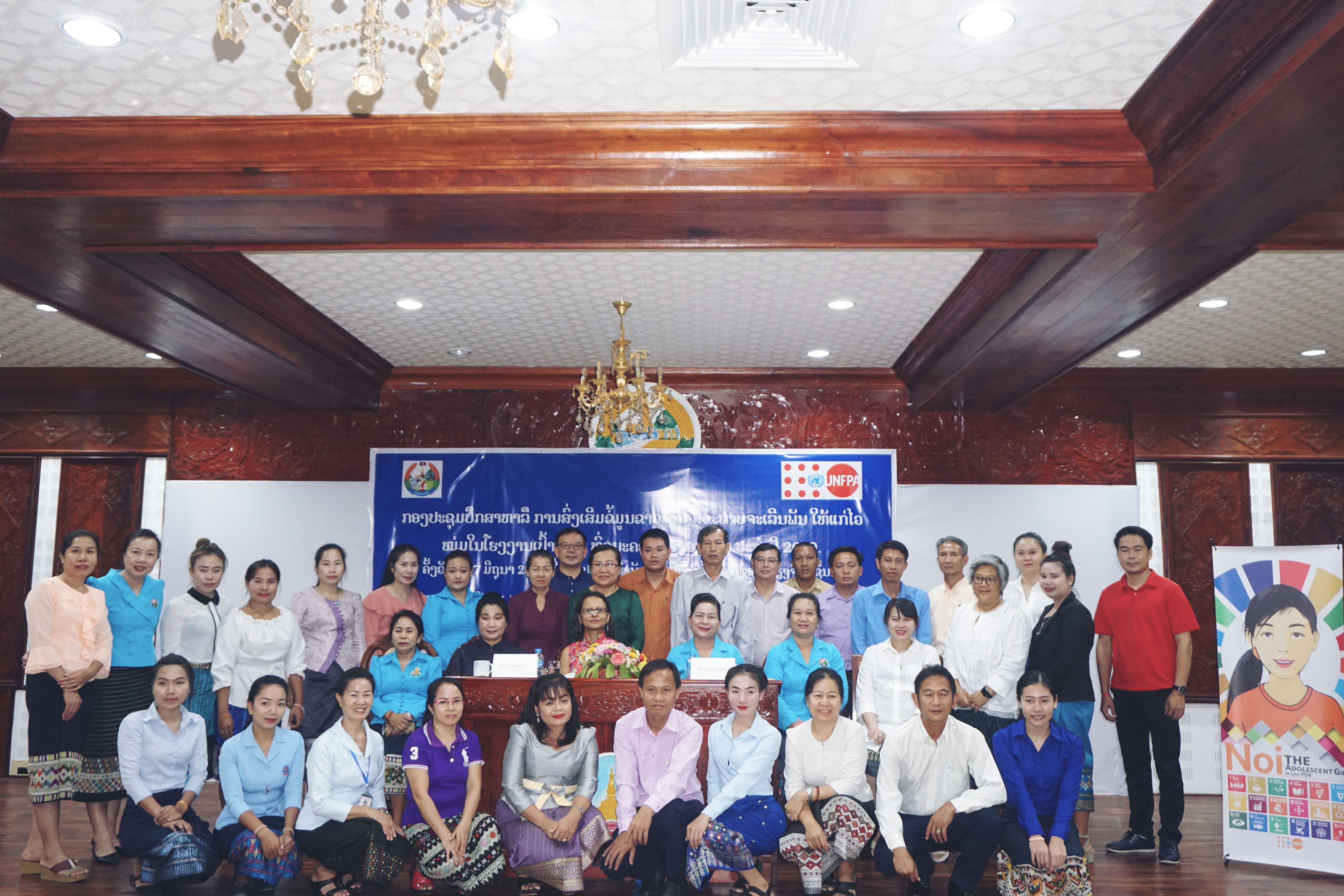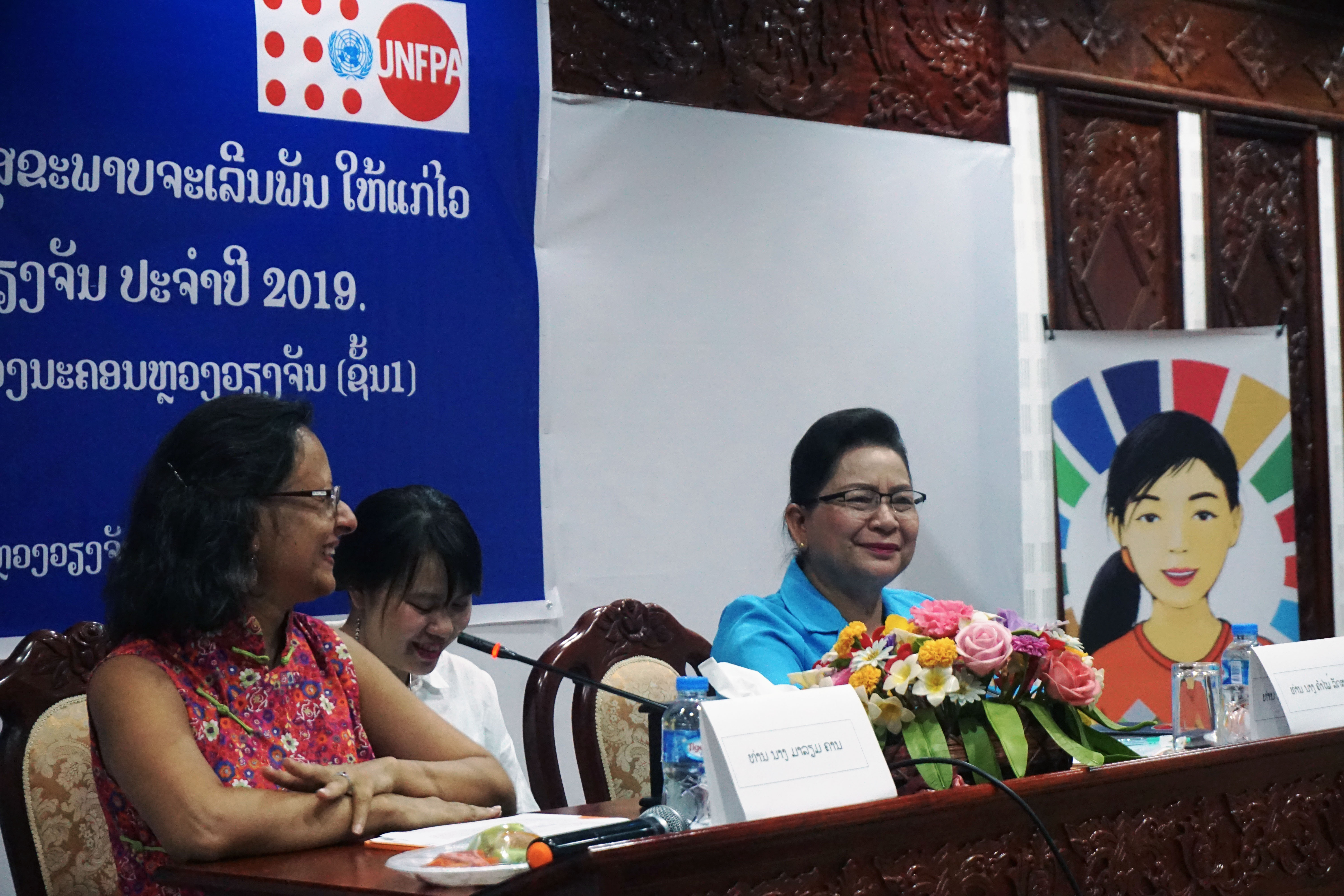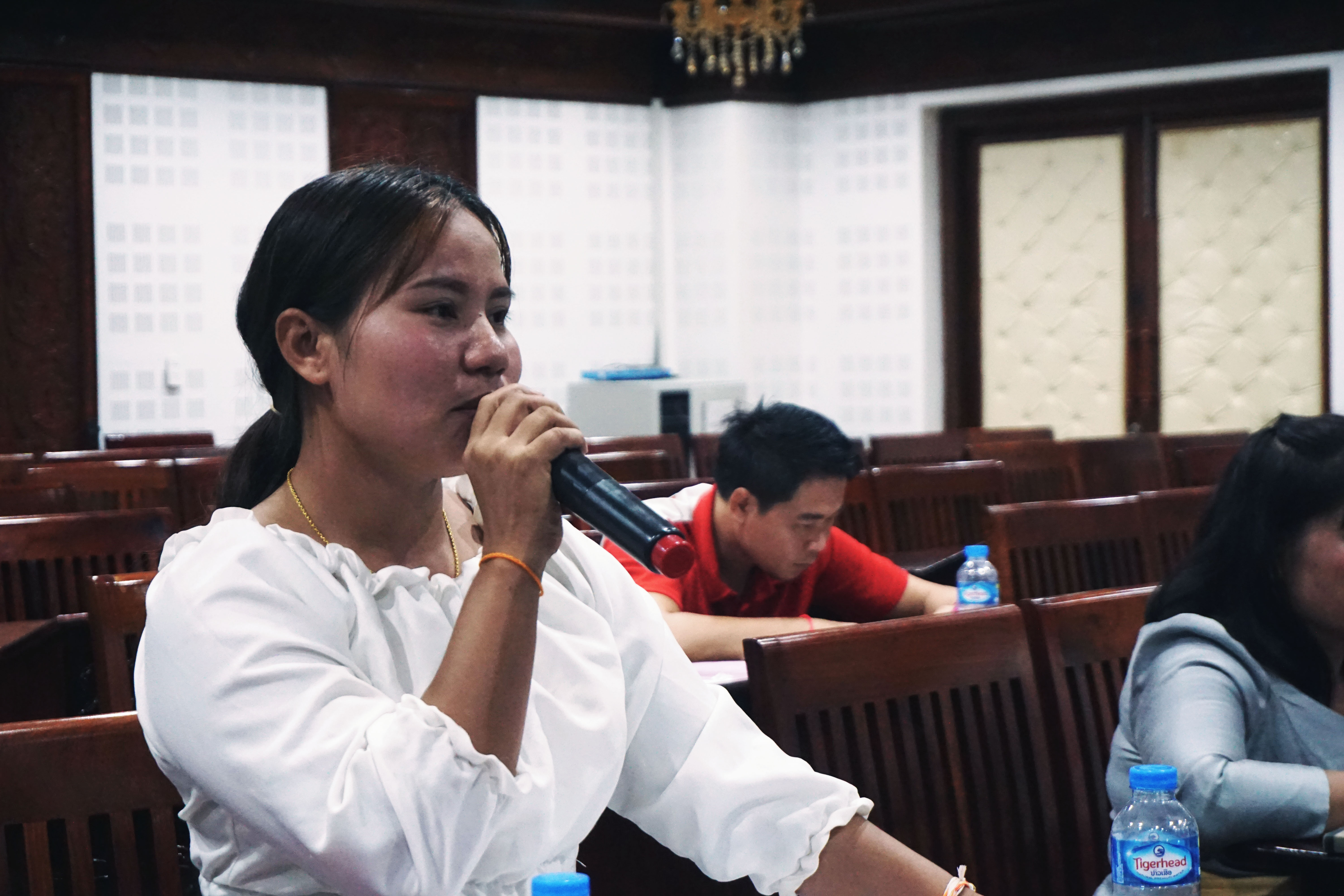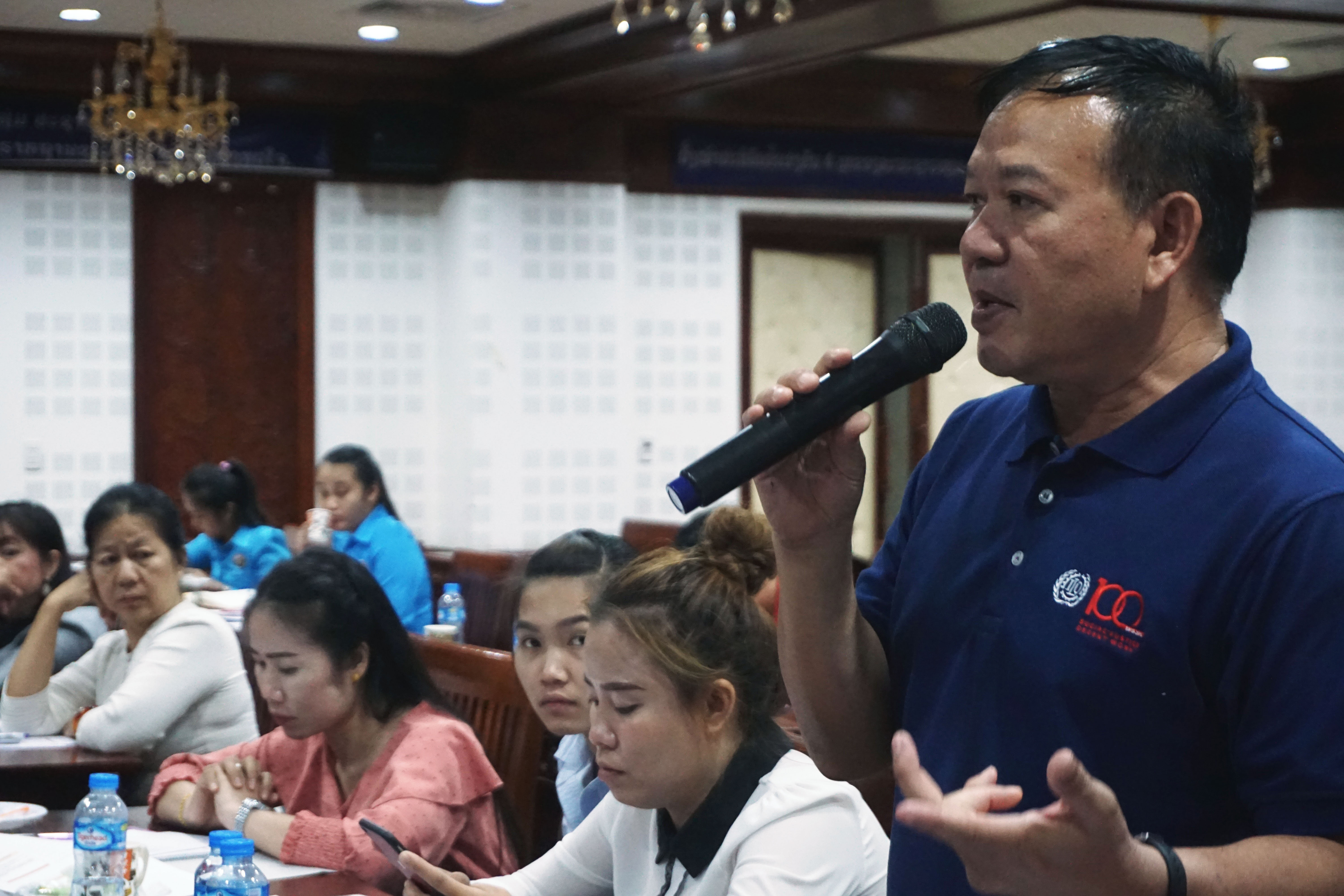Public-Private Partnerships to deliver Sexual Reproductive Health services to Garment factory workers
June 7, 2019 – Vientiane Capital, Lao PDR – Mobile outreach and activities promoting sexual reproductive health aim to reach more garment factories in Vientiane Capital. On Friday, June 7th 2019, Vientiane Youth Clinic (VYC) working with Lao Women Union (LWU) organized a consultation meeting with factory owners and managers, to discuss expansion of ongoing efforts and enhance engagement of the private sector to make available sexual reproductive health information and services to their workforce.

The interactive meeting was led by Lao Women’s Union and UNFPA as the main supporters, present were owners, managers and workers from 20 factories in Vientiane Capital, as well as other UN agencies and civil society organizations in Laos.
About 20,000 people work in garment factories, the vast majority of factory worker is young people aged between 17-25 years1. 85% are female and most of them are female migrants from rural areas who are likely to have dropped out of school. They are likely to be poor, less informed and least likely to access health services, especially sexual reproductive health knowledge and services. Due to the workload, income limitations and lack of knowledge, they do not often consult with health workers. This is why bringing the services to them is a tested approach that can improve their well-being as well as their productivity.

“By emphasizing the importance of SRH for workers in factories, we hope to bring the best benefits to both employers and employees. When young people, women and couples have autonomy over their well-being and sexual reproductive health, not only are they healthier, but their performance also improves, which directly contributes to family and country’s economy.” Said by Madam Khamphay Latsamy, President of the Lao Women’s Union – Vientiane Capital.
By engaging private sector such as garment factories, a sustainable approach to health, well-being and family planning can be delivered to the vulnerable female workers. It is important that employees, especially young people are aware of their sexual reproductive health and needs, so that they can avoid risky behaviours, unintended pregnancies and sexually transmitted infections and so that they can make safe and healthy choices.
Research shows that every 7 in 10 (75.4%) unmarried young women in Lao PDR2 want to use contraceptives but they are not able to for a variety of reasons. UNFPA works with government to improve supplies of contraceptives, to train health workers nationwide to meet with international standards and able to provide friendly sexual and reproductive health services to young people regardless of what background they came from.
The Vientiane Youth Center has trained youth under the Y-Peer concept to provide support at Vientiane Youth Clinic and Hotline service number 1360. Young people, especially women and girls can seek help concerning sexual and reproductive health, family planning and gender-based violence.
Ms. Mariam A. Khan, UNFPA Representatives congratulated those present, she added "Public private partnerships are critical to solving the health challenges faced by young people. That is the spirit of the SDGs. UNFPA welcomes other private sector partners to join this innovative approach so that the most vulnerable youth and women can access sexual reproductive health information and services.”
This is part of UNFPA and partners' efforts to accelerate the #UnfinishedBusiness of #ICPD agenda (#ICPD25, #UNFPA50)


1: World Bank Report 2012
2: Lao Social Indicators Survey II (2017-2018)
###
UNFPA is the United Nations reproductive health and rights agency. It is the leading agency for delivering a world where every pregnancy is wanted, every childbirth is safe and every young person's potential is fulfilled. UNFPA promotes sexual and reproductive health and rights, particularly maternal health, in over 150 countries, as well as working to end harmful practices such as child marriage, and supporting population data collection and analysis.
For more information, please contact:
Ms. Kay amphone Singhalath
Telephone: 021 267 680 Mob: 020 77776597
Email: Singhalath@unfpa.org

